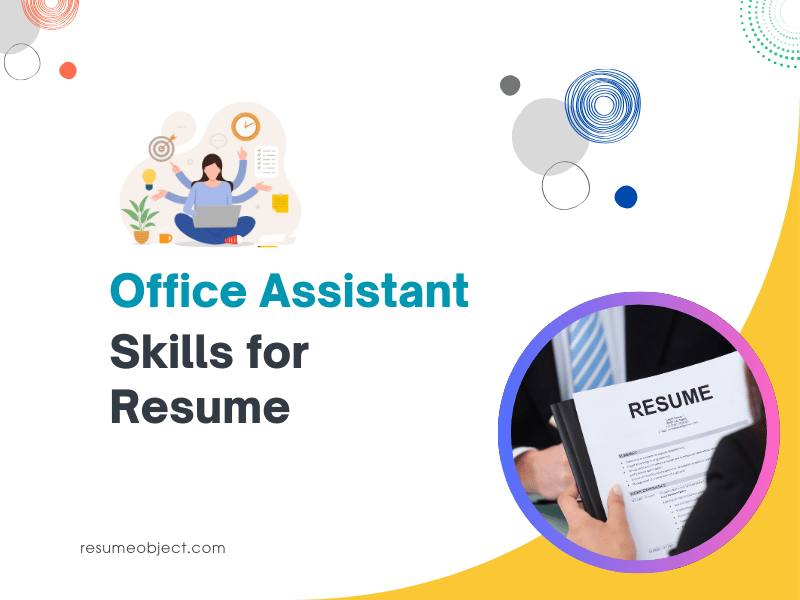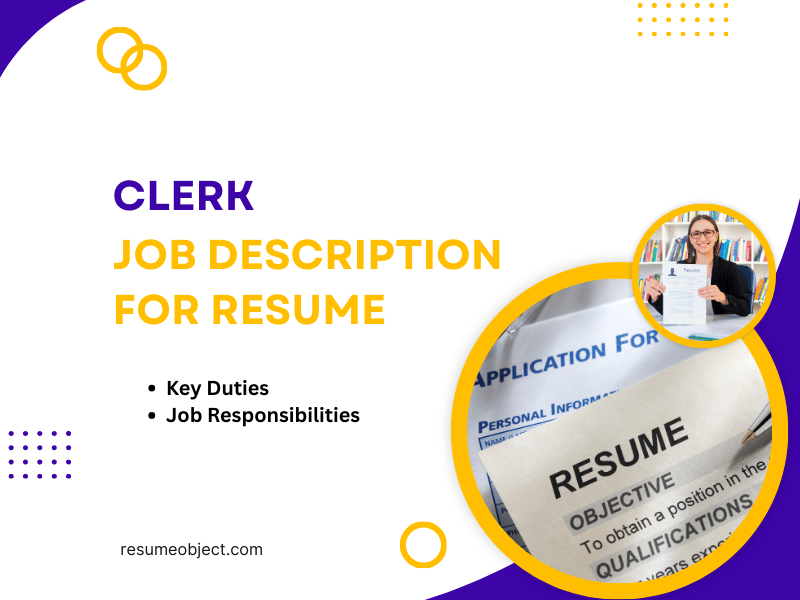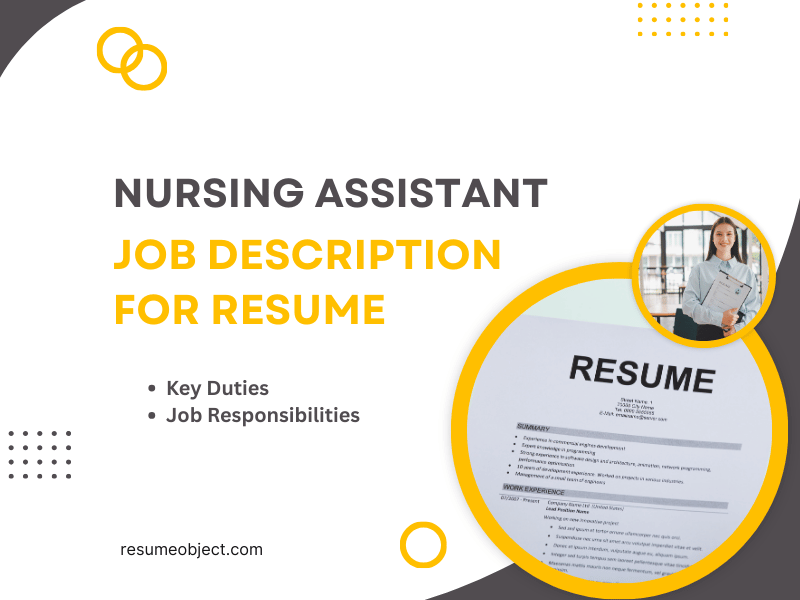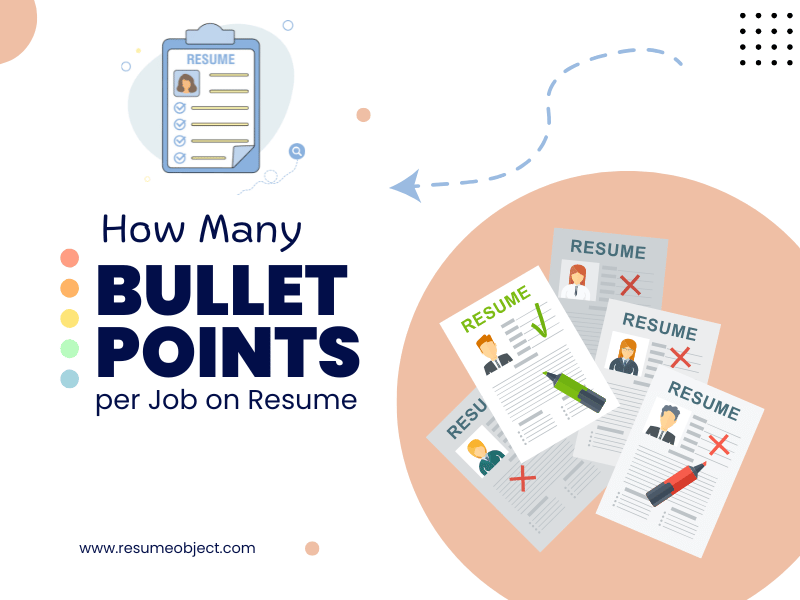Starting your career can feel daunting, especially when your resume lacks extensive work experience. An effective objective statement is your opportunity to make a strong first impression, showcasing your enthusiasm, skills, and potential to employers. At ResumeObject, we’re committed to helping job seekers like you succeed with free resume templates, samples, and guides. This article provides a step-by-step guide to crafting a compelling objective statement for entry-level resumes, ensuring you stand out in a competitive job market.
Why an Objective Statement Matters
An objective statement is a concise, 2-3 sentence introduction at the top of your resume that outlines your career goals and how they align with the employer’s needs. Unlike a resume summary, which highlights past achievements, an objective focuses on your aspirations and potential contributions, making it ideal for entry-level candidates, recent graduates, or those transitioning to a new field.
It serves as a hook to capture the hiring manager’s attention, demonstrating your enthusiasm and relevance despite limited experience. Additionally, a well-crafted objective can incorporate keywords to pass applicant tracking systems (ATS), increasing your chances of landing an interview.
For entry-level job seekers, the objective statement is particularly valuable because it:
- Communicates Motivation: It shows employers you’re eager to learn and contribute.
- Highlights Transferable Skills: It emphasizes skills from education, internships, or volunteer work.
- Aligns with the Job: It connects your goals to the specific role, proving you’ve researched the position.
- Sets the Tone: It provides a professional introduction, framing the rest of your resume positively.
In a 2024 survey by JobSeeker Insights, 68% of hiring managers noted that a clear, tailored objective statement positively influenced their perception of entry-level candidates. By crafting a targeted objective, you can make your resume memorable and relevant.
Also Read: How to List Work Experience to Showcase Career Achievements in Resume
Power Words and Action Verbs to Use in Objective Statement
Choosing the right words in your objective statement can make a significant difference in how your resume is perceived. Power words and action verbs help communicate confidence, clarity, and a proactive attitude—qualities that employers value highly, especially in entry-level candidates. These words not only show that you’re enthusiastic and capable but also help your objective stand out in a competitive stack of resumes.
Power words are strong, descriptive terms that demonstrate initiative, passion, and professionalism. For example, instead of saying “looking for a job in marketing,” a more powerful version would be “motivated graduate seeking to contribute creative strategies and campaign insights to a dynamic marketing team.” Words like “driven,” “eager,” “dedicated,” and “committed” suggest that you’re serious about your career goals and ready to add value to the team.
Action verbs add energy to your writing and showcase your abilities. Even if you have limited experience, you can draw from school projects, internships, volunteer work, or part-time jobs to use verbs like “coordinated,” “led,” “supported,” “created,” “analyzed,” or “managed.” These verbs suggest that you’ve taken initiative and accomplished tasks in meaningful ways, even if they weren’t in a full-time professional setting.
Here’s a list of strong action verbs and power words ideal for entry-level resumes:
- Achieved
- Adapted
- Built
- Communicated
- Designed
- Delivered
- Engaged
- Implemented
- Improved
- Learned
- Managed
- Organized
- Participated
- Presented
- Researched
- Solved
- Supported
- Trained
- Volunteered
- Worked
When used thoughtfully, these words can enhance your resume’s objective by showing that you’re proactive, capable, and ready to contribute. Remember to keep your wording concise and relevant to the position you’re applying for. Avoid exaggeration, and always ensure your claims can be backed by real examples or experiences in the rest of your resume. Power words are the polish that helps your resume shine.
How to Craft an Effective Objective Statement
Creating an objective statement that grabs attention requires careful planning and customization. Follow these six steps to ensure your objective is professional, relevant, and impactful.
1. Analyze the Job Description
Before writing, carefully review the job posting to identify key skills, qualifications, and responsibilities. Look for keywords like “customer service,” “data analysis,” or “team collaboration” that you can incorporate into your objective. This ensures your statement aligns with the employer’s needs and passes ATS filters.
Example: For a customer service role requiring “communication skills” and “problem-solving,” your objective might include these terms to show relevance.
Action: Highlight 3-5 keywords from the job description and plan to weave them into your statement naturally.
2. State Your Career Goal
Clearly articulate your career aspiration in the first sentence, focusing on the role or industry you’re targeting. This shows employers you have a direction and are committed to the position. Avoid vague goals like “seeking a job”; instead, specify the role or field.
Example: “Recent graduate with a B.S. in Marketing seeking a Digital Marketing Coordinator role” is specific and goal-oriented.
Action: Write a sentence that names the position or industry you’re pursuing, keeping it concise and direct.
3. Highlight Relevant Skills
Since entry-level candidates often lack extensive work experience, emphasize transferable skills gained from education, internships, volunteer work, or extracurricular activities. Focus on skills relevant to the job, such as “data analysis” for a business analyst role or “patient care” for a healthcare position.
Example: A candidate for an IT role might mention “proficiency in Python from coursework” to highlight a relevant skill.
Action: Identify 1-2 skills from your background that match the job requirements and include them in your statement.
4. Showcase Enthusiasm and Value
Convey your eagerness to contribute to the employer’s success. Use action-oriented language to express how you’ll add value, such as “eager to contribute” or “committed to delivering.” This demonstrates motivation, a key trait for entry-level hires.
Example: “Eager to apply strong organizational skills to enhance team efficiency” shows enthusiasm and value.
Action: Include a phrase that highlights your commitment to the role or company’s goals.
5. Keep It Concise and Focused
An effective objective statement is brief, typically 2-3 sentences or 30-50 words. Avoid lengthy or generic statements that dilute your message. Focus on the most relevant details to maintain the reader’s attention and ensure clarity.
Example: A concise objective is, “Motivated B.A. in Communications seeking a Public Relations Assistant role to apply strong writing skills and contribute to impactful campaigns.”
Action: Draft your objective and edit it to fit within 50 words, removing unnecessary words or phrases.
6. Use a Professional Tone
Maintain a professional yet approachable tone, avoiding personal pronouns like “I” or overly casual phrases. Use action verbs like “seeking,” “applying,” or “contributing” to convey competence. Ensure your statement is polished and free of clichés like “passionate individual.”
Example: “Recent graduate with a B.S. in Computer Science seeking a Software Developer role to apply coding skills” is professional and direct.
Action: Review your statement for formal language and proofread for grammar and spelling errors.
Examples of Effective Objective Statements
Below are four objective statement examples tailored to different job categories, illustrating how to apply the steps above. Each example is concise, job-specific, and highlights relevant skills or experiences.
Software Developer (Information Technology)
Recent B.S. in Computer Science graduate seeking a Software Developer role to apply proficiency in Python and Java from coursework and internships. Eager to contribute to innovative tech solutions and enhance system efficiency at [Company Name].
Registered Nurse (Healthcare)
Newly certified Registered Nurse with clinical training in patient care seeking an Entry-Level Nursing position. Committed to delivering compassionate care and improving patient outcomes using strong communication skills gained through volunteer work.
Marketing Coordinator (Marketing & Advertising)
Motivated B.A. in Marketing graduate seeking a Marketing Coordinator role to apply content creation and social media skills from university projects. Dedicated to driving brand engagement and supporting innovative campaigns at [Company Name].
Elementary Teacher (Education)
Recent B.Ed. graduate with student teaching experience seeking an Elementary Teacher position. Eager to apply classroom management and lesson planning skills to foster student growth and create an engaging learning environment.
Common Mistakes to Avoid
When crafting your objective statement, steer clear of these common pitfalls to ensure it remains effective and professional.
- Being Too Generic: Avoid vague phrases like “seeking a challenging role.” Specify the position and industry, e.g., “seeking a Data Analyst role” to show focus.
- Overloading with Details: Don’t cram too many skills or experiences into the statement. Focus on 1-2 key points to keep it concise.
- Using Personal Pronouns: Write in an implied first-person style, e.g., “Recent graduate seeking…” instead of “I am seeking…” for a professional tone.
- Ignoring the Job Description: Failing to tailor your objective to the job can make it irrelevant. Always incorporate job-specific keywords.
- Including Unnecessary Fluff: Avoid clichés like “hardworking” or “team player.” Use specific skills or achievements, like “proficient in Excel” or “completed a marketing internship.”
Tips for Entry-Level Candidates
Entry-level job seekers can maximize their objective statement’s impact with these additional tips:
- Leverage Education: Highlight your degree, major, or relevant coursework, e.g., “B.S. in Biology with coursework in genetics” for a lab assistant role.
- Include Internships or Volunteer Work: Mention any practical experience, even if unpaid, to show relevance, e.g., “volunteer experience in community outreach.”
- Research the Company: Reference the company’s mission or values to show alignment, e.g., “committed to [Company Name]’s focus on sustainability.”
- Use Action Verbs: Start sentences with verbs like “seeking,” “applying,” or “dedicated” to convey proactivity.
- Test Multiple Versions: Draft different objectives for various roles to see which feels strongest, then refine based on job requirements.
When to Use an Objective Statement
An objective statement is ideal for entry-level candidates in these scenarios:
- Recent Graduates: If you’ve just completed a degree and have limited work experience, an objective highlights your education and enthusiasm.
- Career Changers: When transitioning to a new field, an objective emphasizes transferable skills and career goals.
- Internship Applicants: For internship roles, an objective shows your eagerness to learn and contribute.
- Jobs with Limited Experience Requirements: If the role doesn’t require extensive experience, an objective can focus on your potential.
If you have significant relevant experience, consider a resume summary instead, as it focuses on achievements rather than goals.
Customizing for Different Industries
Different industries value specific traits in an objective statement. Here’s how to tailor your objective for key job categories on resumeobject.com:
Information Technology: Emphasize technical skills or coursework, e.g., “seeking a Junior Developer role to apply Java and Python skills.”
Healthcare: Highlight certifications or clinical training, e.g., “seeking a Nursing Assistant role to apply CNA certification.”
Marketing & Advertising: Focus on creative or analytical skills, e.g., “seeking a Marketing Assistant role to apply content creation experience.”
Education: Stress teaching experience or classroom skills, e.g., “seeking a Teacher’s Aide role to apply lesson planning skills.”
Finance & Accounting: Mention analytical or software skills, e.g., “seeking an Accounting Clerk role to apply Excel proficiency.”
Objective Statement vs. Resume Summary
Understanding when to use an objective versus a summary is crucial. A resume summary highlights past achievements and is better for experienced professionals, while an objective focuses on goals and is suited for those with limited experience. For example, a summary might say, “Increased sales by 20%,” while an objective says, “Seeking to apply sales skills.” Use an objective when your experience is minimal but your potential is high.
For a detailed comparison, check our article on How to Write an Irresistible Resume Summary That Grabs Attention.
Practical Examples Across More Job Categories
To further illustrate versatility, here are additional objective statement examples for other job categories:
- Business Analyst (Business & Management)
Recent B.B.A. graduate seeking a Business Analyst role to apply data analysis skills from coursework and internships. Eager to contribute to strategic decision-making and process optimization at [Company Name]. - Graphic Designer (Arts, Entertainment & Media)
Creative B.F.A. graduate seeking a Graphic Designer position to apply Adobe Creative Suite skills from university projects. Committed to creating visually compelling designs to enhance brand identity. - Retail Associate (Retail & Sales)
Enthusiastic high school graduate seeking a Retail Associate role to apply customer service skills from volunteer work. Dedicated to enhancing customer experiences and supporting team goals at [Company Name]. - Lab Technician (Science & Research)
Recent B.S. in Chemistry graduate seeking a Lab Technician role to apply laboratory skills from academic research. Eager to contribute to scientific advancements through precise data collection and analysis.
Tools to Enhance Your Objective Statement
Use these tools to refine your objective:
- Job Description Analyzers: Tools like Jobscan can identify keywords to include.
- Grammar Checkers: Use Grammarly to ensure error-free writing.
- Resume Builders: Platforms like Canva offer templates to visualize your objective in context.
- ResumeObject Resources: Explore our free templates at /resume-templates to pair your objective with a professional design.
Testing and Refining Your Objective
After drafting your objective, test its effectiveness:
- Get Feedback: Ask a mentor or peer to review for clarity and relevance.
- Compare with Job Description: Ensure keywords and skills match the job posting.
- Revise for Each Application: Tailor your objective for every job to maximize relevance.
- Check ATS Compatibility: Use a plain text editor to ensure your objective is ATS-readable.
Conclusion
An effective objective statement is a powerful tool for entry-level job seekers, highlighting your potential and enthusiasm despite limited experience. By analyzing the job description, stating clear career goals, showcasing relevant skills, and maintaining a professional tone, you can craft a statement that grabs attention. Avoid common mistakes like generic phrases and ensure your objective is concise and tailored. At ResumeObject, we’re here to support your job search with free resources. Start crafting your resume today with our expertly designed templates and samples!




